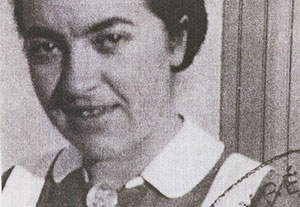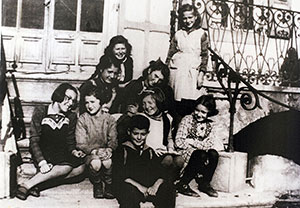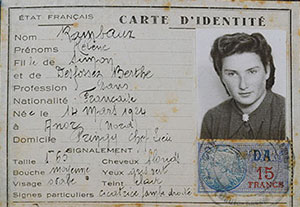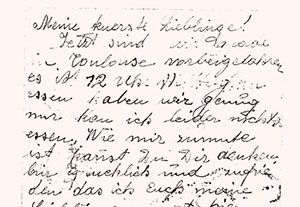Escaping Deportation from Rivesaltes
The Story of the Krieser Sisters
When the bombing of Belgium began in 1940, Perla and Solomon Krieser of Antwerp and their two daughters, 16-year-old Hilda and 12-year-old Hannah fled across the border to France. They were caught together with many other refugees, and sent to the Rivesaltes camp in France.
The living conditions in Riversaltes were appalling - overcrowding in the barracks, lack of sanitation, hunger and malnutrition, widespread disease and epidemic outbreaks. During her internment, Hilda was lucky enough to work as a kindergarten teacher under the auspices of the Secours Suisse, an organization affiliated with the Swiss Red Cross that operated in the camp. Thanks to her position she received extra food rations, which she then shared with her family. After a while, Hilda was offered a similar position in a Red Cross children's home in the city of Pringy, Switzerland. Hilda accepted the position on the condition that she could take her sister Hannah with her.
When they arrived in Pringy, the municipal secretary gave Hilda false ID papers bearing the name Helene Rambaux, and she started to work, not revealing her Jewish identity. The sisters managed to correspond with their parents, who remained in Riversaltes.
Hilda and Hannah's safe haven was short lived, however, as in the summer of 1942 the sisters were returned to Riversaltes by the French police so that the family could be "reunited in a new camp". Back at Rivesaltes, the deportations to the East were well under way. Together with their mother, Hilda and Hannah waited in line to board the train. Friedel Bohny-Reiter, a member of the Secours Suisse who was shocked to see the girls back in the camp, signaled them to come with her. Friedel then led them to an unlit storeroom in the camp where they hid. Friedel went back and pulled more children off the train and hid them in the storeroom, asking Hilda to watch over them and ensure that they wouldn't cry. For three days Friedel worked relentlessly, trying to convince the camp commander and senior officials elsewhere to let the children go.
Eventually she succeeded in attaining the precious permits for Hilda and Hannah to leave the camp and return to the children's home in Pringy, where they stayed until the end of the war.
Friedel Bohny-Reiter sent the other children she had hidden in Riversaltes to families who agreed to hide them, thus saving their lives. In recognition of her rescue work, she has been honored by Yad Vashem as Righteous Among the Nations.
The transport that the Krieser girls evaded left Riversaltes bound for the Drancy camp. From there, the deportees were sent to Auschwitz, where most of them were murdered.
Deported separately, Perla and Solomon Krieser were both murdered in Auschwitz. Shortly before his deportation, Solomon sent his daughters a parcel containing his tallit (prayer shawl), all the family's money and a postcard, the last words he would write to his children. Perla Krieser wrote a last letter to her daughters from the deportation train as it passed Toulouse.









